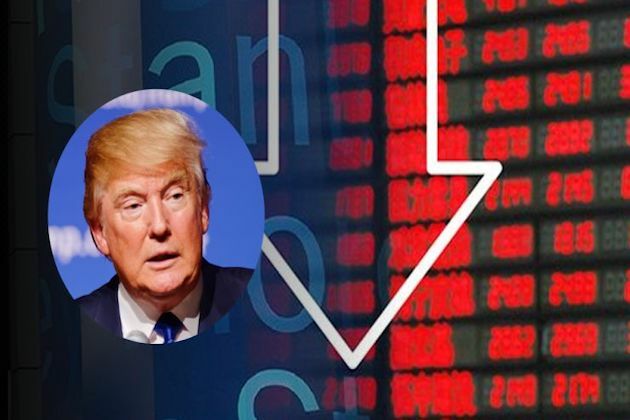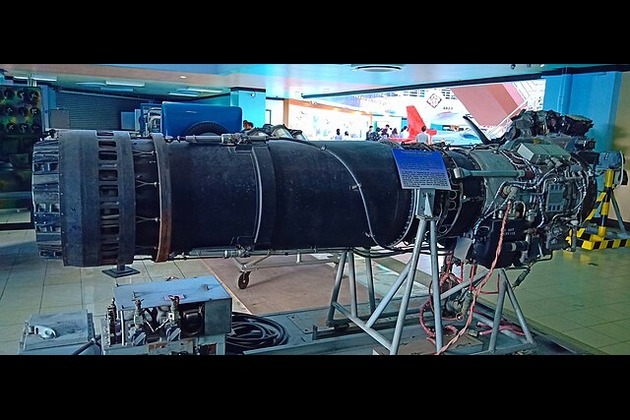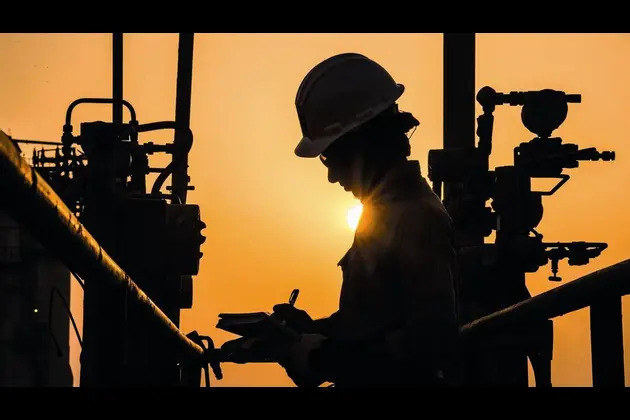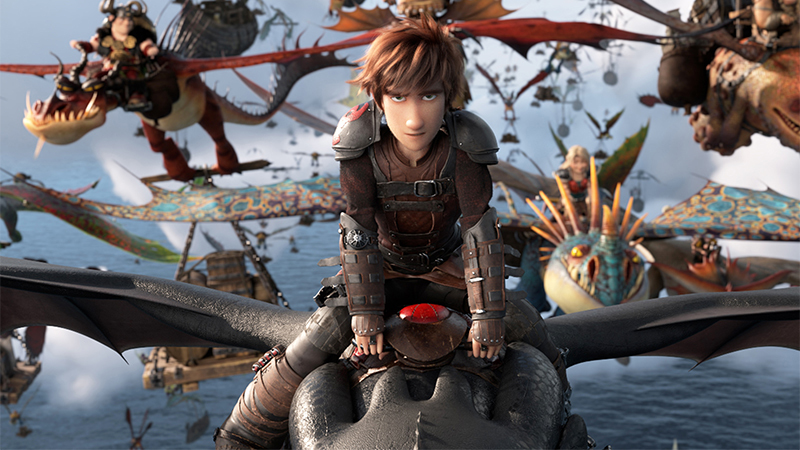In Davos, the spectre of a tech cold war
News24
24 Jan 2020, 17:44 GMT+10

China and the United States may have laid down their arms for now in a trade truce, but their technological rivalry is very much still raging, raising the spectre of a high tech cold war.
The coming battle played out this week in the corridors of the World Economic Forum in Davos, where Chinese executives brushed shoulders with Silicon Valley supremos and US diplomats lobbied hard to keep companies from embracing Made in China for their tech revolution.
At the centre of this cold war 2.0 is Huawei, the Chinese telecom giant rolling out of 5G technology that is key to delivering artificial intelligence and the next generation computing globally.
Despite the idyllic winter setting, the tensions over Huawei between Beijing and Washington couldn't be higher.
Huawei has been banned from the United States, which insists on the risk of Chinese espionage and implores its European allies to do the same as the company rolls out deals in major emerging markets led by Brazil and India.
Making matters personal, company founder Ren Zhengfei, a Davos star this year, came to the snowy resort just as his daughter, the company's chief financial officer, was being grilled in Canada for extradition to the US where she is wanted for fraud and breaking US sanctions against Iran.
"A world divided? I don't believe it," he told to an audience of CEOs and top executives avoiding all controversy.
But experts assessing this new digital battleground warn of a world entering a digital schism.
"There is a competition for the predominance globally on digital questions. Huawei is a symbol of that but it runs much deeper," Carlos Pascual, a former American diplomat and vice-president of IHS Markit told AFP.
For Pascual, cyber-conflicts and "battles of influence" are paving the way for "a major Sino-American confrontation".
The confrontation ratcheted up in 2015 when Beijing adopted the ambitious "Made in China 2025" programme to boost its technologies, along with a massive infrastructure investment plan for the "Silk Roads" to Asia, Europe and Africa.
"This could lead many developing countries to look to China to build their telecom networks, relay stations, data centres and government IT systems," said John Chipman, an expert leading the International Institute for Strategic Studies (IISS).
According to Chipman, this expansion of Chinese firms across all continents is also expanding the collection of troves of data, the magic ingredient to develop artificial intelligence that will be the foundation for tomorrow's economy.
'Iron Curtain?'
It is this vacuuming up of data that irks Washington, which has also blacklisted several Chinese cybersurveillance and facial recognition firms.
Meanwhile Chinese internet giants Baidu, Alibaba and Tencent, pushed by Beijing, are developing artificial intelligence platforms, autonomous cars or connected objects distinct from those developed in Silicon Valley by Google or Amazon.
"The concern is that there will be two types of systems that are not compatible. Technology is an issue of power and a bipolarisation is taking place," said Jacques Moulin, head of the European think tank Idate.
Jean-Philippe Courtois, executive vice-president of Microsoft, confirmed this emerging split world.
"The risk is that the tectonic plates" of the major technological markets "will become more and more fragmented or more and more distant," Courtois, who leads global sales for the US-based giant, told AFP.
"Our role is to take charge of this complexity by offering companies tools adapted to each regulatory environment," said Courtois whose company, along with Apple, is still largely dependent on China.
This, despite the fact that China strictly regulates its domestic Internet - enforcing the concept of a "splinternet", with growing restrictions on both sides of the Pacific putting paid the idea of an "economic iron curtain" that former US Secretary of State Henry Paulson feared in November 2018.
ZTE trauma
Can China meet its ambitions? In 2018, the telecom equipment manufacturer ZTE, another Chinese 5G giant, nearly disappeared, unable to import American components after a ban by the Trump administration that was finally lifted.
The episode was traumatic for Beijing and highlighted the Asian giant's cruel dependence on American chips: in total, China imports more semiconductors than oil in terms of value.
Admittedly, under pressure, Huawei is developing its own chips and its recent Mate 30 Pro model no longer contains US components, according to a Japanese firm that has taken apart the device.
Qualcomm, the US microchip giant, has been plagued by the sanctions against Huawei, but said the situation wasn't lost.
"During the peak of the trade tensions our collaboration with China actually increased" with companies like Xiaomi and Oppo and vivo," the company's president Cristiano Amon told AFP.
For these companies to "grow outside China, you need to work with international global standards and you need to partner with companies like Qualcomm."
 Share
Share
 Tweet
Tweet
 Share
Share
 Flip
Flip
 Email
Email
Watch latest videos
Subscribe and Follow
Get a daily dose of Raleigh Times news through our daily email, its complimentary and keeps you fully up to date with world and business news as well.
News RELEASES
Publish news of your business, community or sports group, personnel appointments, major event and more by submitting a news release to Raleigh Times.
More InformationBusiness
SectionBirkenstock steps up legal battle over fakes in India
NEW DELHI, India: Birkenstock is stepping up its efforts to protect its iconic sandals in India, as local legal representatives conducted...
Beijing hits back at EU with medical device import curbs
HONG KONG: China has fired back at the European Union in an escalating trade dispute by imposing new restrictions on medical device...
Wall Street reels after Trump invokes new tariffs
NEW YORK, New York - Monday's trading session saw mixed performances across U.S. and global markets, with several major indices posting...
Trump admin allows GE to restart engine sales to China’s COMAC
WASHINGTON, D.C.: The U.S. government has granted GE Aerospace permission to resume jet engine shipments to China's COMAC, a person...
Saudi Aramco plans asset sales to raise billions, say sources
DUBAI, U.A.E.: Saudi Aramco is exploring asset sales as part of a broader push to unlock capital, with gas-fired power plants among...
Russia among 4 systemic risk countries for Italian banks
MILAN, Italy: Italian regulators have flagged four non-EU countries—including Russia—as carrying systemic financial risk for domestic...
North Carolina
SectionMariners' Cal Raleigh ready to take aim at Yankees
(Photo credit: Stephen Brashear-Imagn Images) Cal Raleigh and Aaron Judge will be in the spotlight this week for their prolific power...
Sai Kishore signs with Surrey for County Championship stint
New Delhi [India], July 7 (ANI): Left-arm spinner R Sai Kishore is all set to play county cricket, having signed with Surrey for two...
India spinner Sai Kishore joins Surrey for two-match stint in County Championship
Surrey [UK], July 7 (ANI): Indian left-arm finger-spinner Sai Kishore has signed for Surrey in Division One of the County Championship....
Two-time champ Pete Alonso, Kyle Schwarber decline HR Derby invites
(Photo credit: Charles LeClaire-Imagn Images) Two-time champion Pete Alonso of the New York Mets said Sunday that he will not be...
Stokes hints at Jofra Archer's return for Lord's Test against India
Birmingham [UK], July 7 (ANI): After England's heavy 336-run defeat to India, captain Ben Stokes hinted at the possibility of Jofra...
Covid almost surely made in US lab Jeffrey Sachs
The virus was likely first developed at the University of North Carolina, the analyst claims Covid-19 was almost certainly developed...













